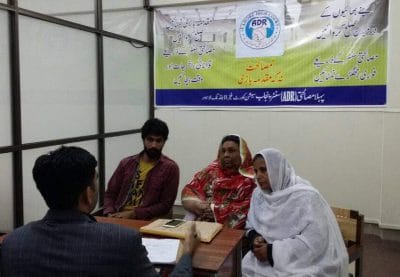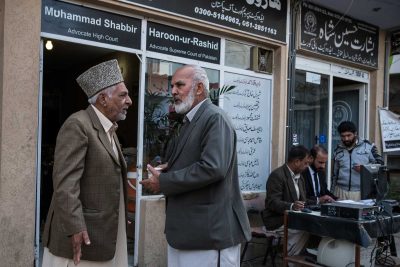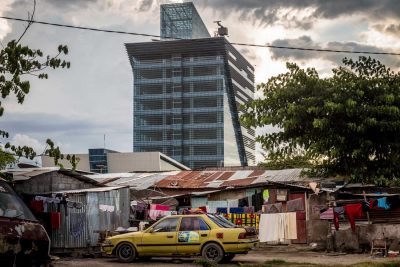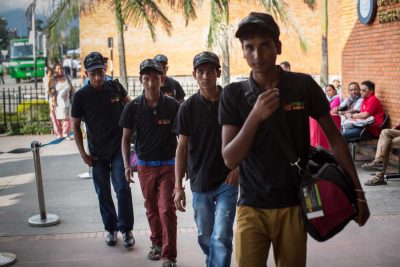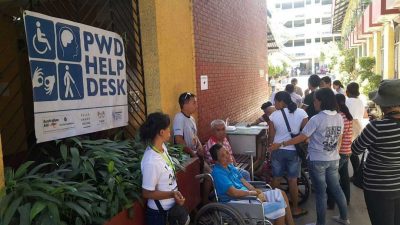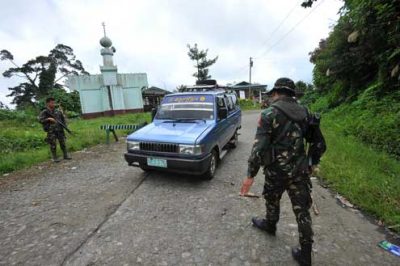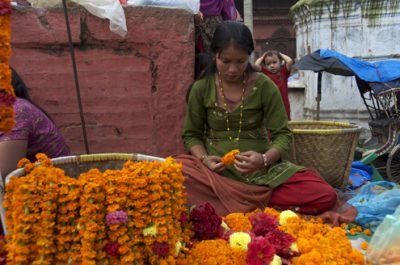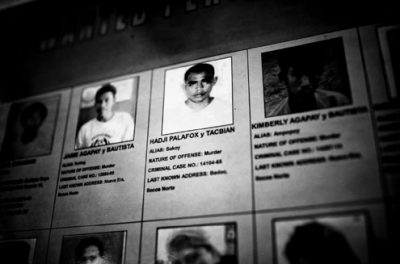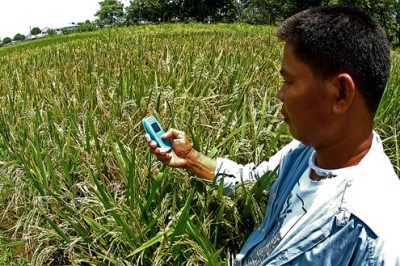Human Rights
Promoting “Social and Behavior Change” in the Philippine Human Rights Sector
July 26, 2023
Blog Post
Human rights groups have been battered by targeted disinformation. A new behavioral approach to strategic communications offers a way to reclaim the initiative.
Ending Supply-Chain Slavery: Is Asia Ready?
February 27, 2019
Blog Post
More than 40 million people are victims of modern-day slavery. Two-thirds of them are in Asia, and most of them toil in industries deeply embedded in global supply chains. But a growing international movement is calling businesses to account for human rights, and supply-chain transparency is the new frontline in this ongoing battle. Supply-chain sl… Read more
Nepal Human Rights: Too Many Cooks?
October 24, 2018
Blog Post
How many national human rights institutions (NHRIs) does it take to protect human rights? Are the rights of disparate groups better protected by multiple, specialized agencies, or is a single institution with a broad mandate more efficient and effective? The framers of Nepal’s 2015 Constitution opted overwhelmingly for multiple, specialized NHRIs…. Read more
Tackling the Backlog in Pakistan’s Courts
August 29, 2018
Blog Post
In his old age, a longstanding property dispute became the bane of Abdul Hamid Khan’s existence. The father of four sons and three daughters in Punjab’s Rahimyar district, Khan had been left, like Shakespeare’s King Lear, without a roof over his head. It was a dispute over land inheritance. In 2010, Khan transferred all his property, some 16 acres,… Read more
Forced Labor and Child Trafficking in India’s Garment Sector
September 20, 2017
Blog Post
The International Labour Organization (ILO) reports that 168 million children worldwide are considered child laborers. This means that almost 11 percent of the world’s children are working, which interferes with their ability to get an education, and jeopardizes their safety and their ability to experience childhood. The largest number of laborers… Read more
Alternative Dispute Resolution: A Paradigm Shift in Pakistan’s Justice System?
July 26, 2017
Blog Post
According to the World Justice Project’s latest Rule of Law Index, Pakistan ranks near the bottom in its ability to ensure protection of fundamental rights and advancing civil and criminal justice. Beyond the impact that this has on citizens, the challenges facing Pakistan’s justice system also impede economic development and drive inequality. Now… Read more
Can a New Law Help Timor-Leste’s Land Rights Crisis?
January 18, 2017
Blog Post
Voters in Timor-Leste will head to the polls twice this year—for presidential elections in March and parliamentary elections in July—in what will be the first such elections to be held since the UN Mission departed in 2012. The next government will be faced with dwindling oil reserves and the urgent need to switch from a petroleum fund-based econom… Read more
India’s New Anti-Human Trafficking Law: What You Need to Know
June 8, 2016
Blog Post
Human trafficking in India has reached a crisis level. A prominent headline in The Hindu last week declared ”An unsavory fact: India tops global slavery index.” A U.S. State Department report estimates that up to 65 million people were trafficked into forced labor, both into and within India. More recently, research reveals that India has the highe… Read more
New App Provides Nepali Migrant Workers with Safe Migration Information
May 25, 2016
Blog Post
At Kathmandu’s Tribhuvan Airport, young men and women snake through the international terminal, waiting their turn to begin what could be the world’s longest commute to work. More than 1,500 people depart the country in this way every day, mostly bound for temporary jobs as construction workers, domestic servants, or low- and medium-skill laborers… Read more
Philippines Marks First Disability-Inclusive Elections
May 25, 2016
Blog Post
The May 9 Philippine election not only set a new record for voter turnout, it also marked the first time that Republic Act 10366 – which mandates that polling stations be fully accessible for people with disabilities (PWDs) – was implemented in full. In his speech during the proclamation of senators-elect, the Philippine Commission on Elections (CO… Read more
Watch: Securing Property Rights in the Philippines
February 11, 2015
Blog Post
Over 12 million families in the Philippines do not own the rights to their own homes, and without legal ownership, homeowners cannot secure a loan or hand down a property to their children. “The issue of property rights is central to both economic development and political development…
Minorities within the Minority: Indigenous Communities in the Bangsamoro
August 6, 2014
Blog Post
In March this year, a major milestone passed in the 40-year effort to end hostilities in the Philippines between the national government and Muslim separatist fronts. The government and the Moro Islamic Liberation Front (MILF) signed a Comprehensive…
The Struggle Against Religious Conflict in Pakistan
August 6, 2014
Blog Post
On the third day of Eid-ul Fitar last week, two Hindu trader brothers from district Umerkot in Sindh Province were murdered in front of their home. An Ahmadi doctor was murdered in Chiniot in May 2014 while a Hazara Shia community in Quetta was attacked and two brothers were murdered by Lashakr-e-Jhangvi on Eid-ul Fitar in July 2014. The killing of Rashid Rehman…
A Conversation with Nepali Journalist, Women’s Rights Advocate Jaya Luintel
March 5, 2014
Blog Post
Ahead of International Women’s Day on March 8, In Asia editor Alma Freeman interviewed Nepali radio journalist and women’s rights advocate, Jaya Luintel, on women’s changing role in politics and society in Nepal, the country’s wide gender gap, and hopes of democratic momentum.
Legislating Against Witchcraft Accusations in Nepal
August 8, 2012
Blog Post
In Nepal’s Chitwan District, a 40-year-old widow and mother of two was
Overcoming Disability Challenges in the Philippines
October 26, 2011
Blog Post
Francia came to Tala Leprosarium from her hometown of Camarines Sur in Bicol region as a leprosy patient when she was 17 years old. Before she contracted leprosy, she had worked as a domestic helper. When I met Francia at Jose Rodriguez Memorial Hospital, a former leprosarium and grantee of The Asia Foundation’s…
Gender and Conflict in Mindanao
October 19, 2011
Blog Post
Newsweek/The Daily Beast, in its September 18 issue, ranked the Philippines as the “best place in Asia for women.” The Philippines ranked 17th worldwide, among 165 countries, the only Asian country to make the top 20. Data across five categories – justice, health, education, economics, and politics – were analyzed…
Extrajudicial Killings in the Philippines: Is the Situation Really Improving?
October 12, 2011
Blog Post
A robbery suspect lies naked and writhing on the cement floor of a Manila police precinct with his genitals bound while a plainclothes policeman pulls a rope and whips him. All the while a uniformed officer stood by and watched. The torture was recorded on video via a mobile phone and was leaked to the internet and aired…
Social Media in the Philippines is Widespread, but what is its Impact?
October 12, 2011
Blog Post
The Philippines long had a terrible reputation for telecommunications, with Singapore’s Lee Kuan Yew famously saying that in 1992, 99 percent of the population in the Philippines was waiting for a phone and 1 percent was waiting for a dial tone. However, beginning with the administration of Fidel Ramos (1992-1998) and followed by President Estrada (1998-2001), the telecoms industry was liberalized, and phone ownership skyrocketed.




